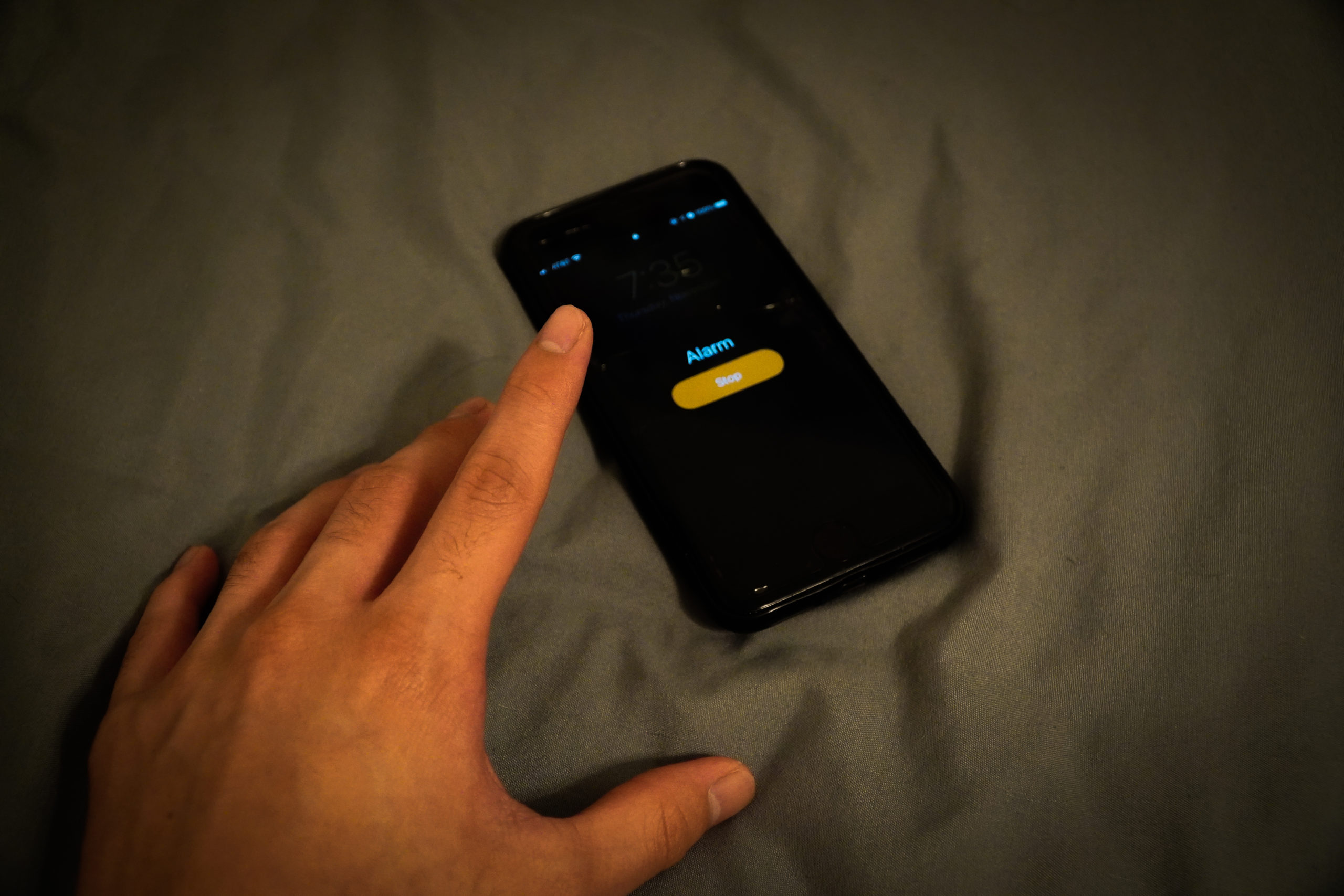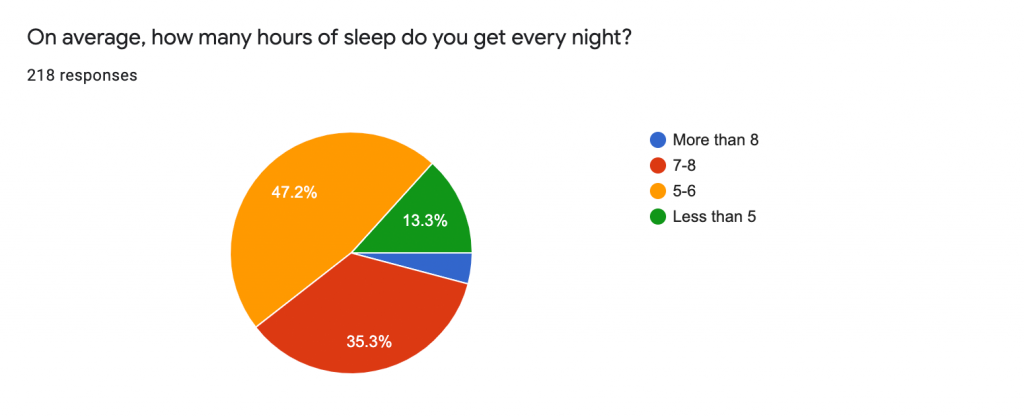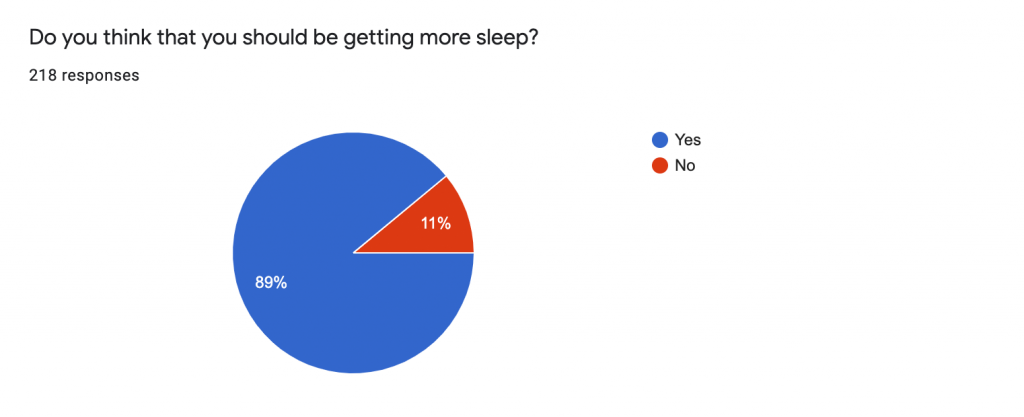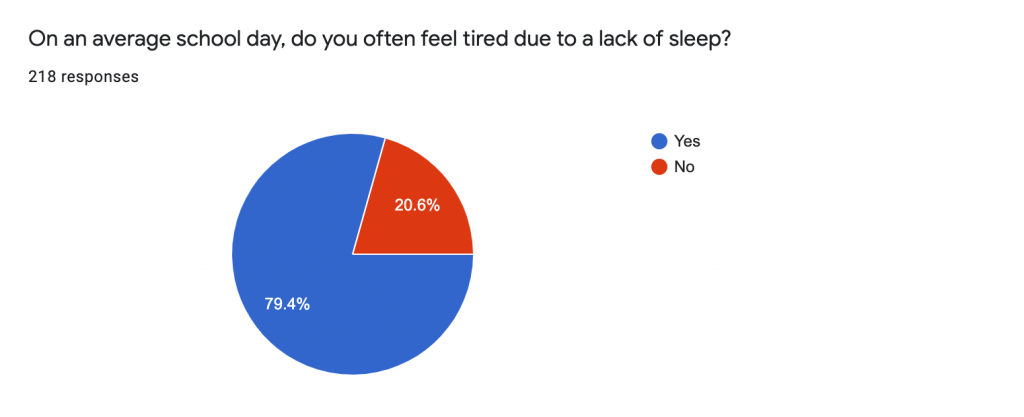We Could All Use More Sleep

It seems as though our busy schedules, filled with work, school, family, friends, etc., make it very difficult for us to get a healthy amount of sleep. Many of us have accepted that we simply have to make do with what we can get.
HBA junior Ashlie Kiyabu gets about five hours of sleep every night. Just before going to bed, she often does her homework and uses her phone to either listen to music or talk with her friends. As a result of her lack of sleep, Kiyabu says she feels “pretty drained and tired” during the day. For her, the solution is simple—she should complete her homework ahead of time—and she aims to reach this goal, eventually. Similarly, Senior Phoenyx Aguada believes that he can improve his current five to seven hours of sleep schedule by completing his homework ahead of time, instead of working on it before going to sleep. Aguada says he feels “tired and depressed” as a result of his sleep habits. He also reports using his electronics just before going to bed.
However, not all students struggle with getting enough sleep, and they are in the minority. Sophomore Caley Chun says she usually gets nine hours of sleep. Chun prays and performs breathing exercises before going to bed and described her mood during the day as generally “happy, well-rested, and calm.” Chun stays away from electronics just before bedtime and also tries to get her school work done ahead of time. On nights when she gets less sleep, Chun says it is most likely due to coming home late from sports practices or completing homework late into the night.
An Eagle Eye poll of 218 HBA high school students found that nearly half of them get only five to six hours of sleep on an average school night (much less than the eight to ten hours recommended by the National Heart, Lung, and Blood Institute). HBA counselor Susan Goya isn’t surprised by the data. She believes that the main causes behind the data are homework, the use of electronics while studying, procrastination on assignments, and the use of electronics during a student’s free time. According to the poll, 89.4% of students believe that they need more sleep while nearly 80% claim to feel tired throughout the day from insufficient sleep.



Adults at HBA are no exception when it comes to sleep deprivation. Math teacher Aaron Kondo reports getting between five to six hours of sleep each night and feels tired mostly in the beginning and end of the day. He avoids using electronic devices before going to sleep. Kondo says his lack of sleep is mostly due to exercising, coaching running sports at HBA, and spending time with his wife. “Giving up some sleep right now in order to do those things seems like a reasonable trade-off,” he said.
Science teachers Claire Mitchell and Sean Shiroma are both parents of young children. Currently, they report getting between six to eight hours of sleep on an average school night. Mitchell spends her time before bed putting her 16-month old daughter to sleep, doing chores, and finishing up on work for school. Similarly, Shiroma bathes his 17-month old son and reads to him before putting him down to sleep. He then spends time with his wife and they pray together before going to bed. Like many parents, these teachers have to catch up on responsibilities and chores before they go to bed. While Mitchell goes through her average day feeling “tired and a bit stressed,” she also feels “mostly positive and happy.” Shiroma also reports feeling mostly positive during the average work day but admits that that if his sleep is disrupted, he becomes “an angry and grumpy ogre.”
English teacher Alexandra Taylor has slightly older children than Shiroma and Mitchell, and is more able to get the full eight hours of sleep on most nights. Her children are six and three. “Because of my issues with insomnia, I am very strict about not allowing myself to be on my phone or computer after 8 p.m. I usually watch a mild, light-hearted show (The Office and The Great British Baking Show are my favorites) and wear blue-light protection glasses so that the light doesn’t mess with my circadian rhythm. Then I go to bed and read an actual physical book from about 8:45 to 9:15. Lights out at around 9:15. As long as I’ve been able to wind myself down, I usually am OK to fall asleep. Life is very different for middle-aged people compared to teenagers when it comes to sleep,” she said.
Art teacher Juri Yamashita has a similar routine. “I read a book until I get tired. I cut myself off from devices at least a half-hour before I try to sleep,” she said. Taylor and Yamashita are both disciplined about their bedtime routines and they are generally ready for the day when they wake up. Taylor has describes her morning moods as enthusiastic while Yamashita says she is “groggy in the morning and then great after a cup of coffee.”
Spanish teacher Gray Spainhour, who just got married this summer, reports mostly getting the recommended eight hours of sleep and feeling well-rested but “never quite caught up with all of [his] work.” His bedtime routine often includes watching the NBC Nightly News and Jimmy Fallon’s comedic daily news briefings before going to sleep.
According to HBA school counselor Susan Goya, “Lack of sleep can affect one’s immune system which becomes vulnerable when a person is exposed to the common cold or flu virus. The ability to recover quickly can be compromised…Constant lack of sleep can lead to diabetes, obesity, and cardiovascular disease, such as irregular heartbeats…Sleep is also important in helping to prevent depression and drug use.” Goya’s list of the negative effects of sleep deprivation is confirmed by health experts. The Sleep Foundation says that depression and sleep are closely related, in that people with poor sleeping habits are more likely to develop depression. Recovery First adds that people with mood disorders (such as depression) are two times more likely to abuse substances.
Goya recommends that students stop using electronic devices one to two hours before bedtime to give the brain and body time to wind down. “Reading a book or magazine would be a much better alternative to using electronics late at night,” she added.
Other HBA faculty members also have advice to share. Shiroma said, “I believe that there usually is a way to get more sleep. If I am not getting enough sleep that tells me that I need to cut back on something or plan better.” Mitchell offered her way of self-evaluation: “I try to ask myself if whatever I’m doing with my time late at night is something that I would get up earlier than 5 a.m. to do, and if the answer is no, it’s probably not worth the sleep sacrifice at night either.” Similarly, Taylor stays disciplined by keeping her priorities in check. “Too many people depend on me for things and when I’m sleep-deprived I put people in danger, so sleep is one of the most important things to me. If something isn’t done before bed, it just doesn’t get done. I don’t stay up late in order to finish things. I’m ok with not being perfect,” she explained.
